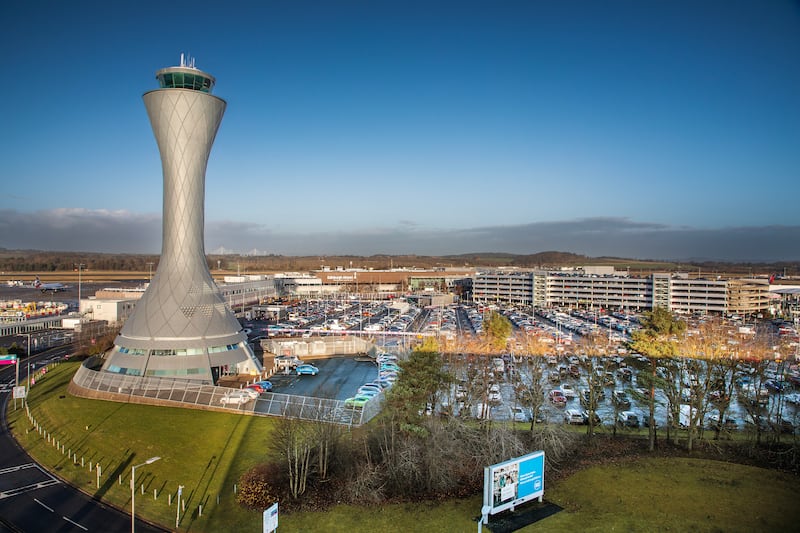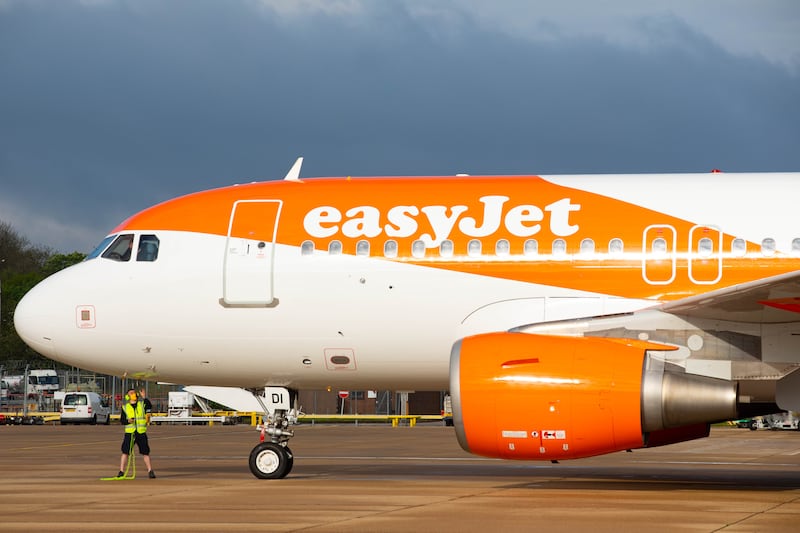AIRPORT security culture in the north is set for its biggest shake up in decades from next June.
New mandated 3D scanning technology will mean passengers being able to leave liquids and electrical devices in their in-flight bags for security checks.
It spells the end of the dreaded 100ml bottle in a clear bag rule, and will mean passengers handling fewer trays for their belongings.
The stringent rules around airport security were introduced in 2006 following a foiled terror plot to blow up planes flying from London to the US with homemade liquid bombs.
Belfast International Airport managing director Graham Keddie confirmed the airport is on course to meet the UK’s government's June 2024 deadline to install the new technology.
The CT scanners offer more detailed images of what is inside bags.
Read more:
- Belfast International flying high again as passenger numbers double
- Plans approved for new Premier Inn hotel at Belfast International Airport
- Holiday airline Jet2 announce 'biggest ever' summer schedule from Belfast International
- North 'well primed' to benefit from Ryanair's Dublin Airport row
It’s expected to substantially speed up security checks at all airports, which are often held up by passengers failing to adhere to the rules.
But it has come at a major cost for Belfast International.
Aside from the £6 million purchase cost for the six new 3D scanners it will install, the scale and weight of the machines has necessitated the construction of a whole new building to house them in.
The total cost of the project is expected to be in the region of £25m.
Belfast International is owned by Vinci Airports, part of the French Vinci Group, the world’s second largest concessions and construction group.

“We’ve purchased the machines, we’ve purchased the new body scanners and the building is under way,” said Mr Keddie.
“We’re on target to be fully operational on the first of June.”
The £6m tender to supply the technology has been won by UK security tech firm Smiths Detection, while Portadown-based Piperhill Construction is currently on site building the new hall next to the current security operation.
“It means you’ll be able to keep your electrics and liquids in your bag,” said the airport boss.
Work is ongoing to develop a new training programme for staff, and the airport is recruiting a new security transformation manager
“It’s an exciting time,” he added.
The completion of the project next Spring will eventually see the existing security hall repurposed as a new large duty free shopping area.

Belfast City Airport and City of Derry Airport, like all UK airports, will also be required to install the new technology.
London City Airport became the UK’s first major airport to introduce the new scanners in April 2023.
Dublin Airport introduced 3D scanners across May and June this year.
Meanwhile, it’s understood the UK Border Force operation at Belfast International is also in line for an expansion
The Home Office is believed to be planning to install two additional desks at the airport, which has often been a pressure point for arriving passengers.
It’s thought the operation will eventually become an automated system, with new technology installed to speed up the process.

Aside from queues and delays, one of the biggest issues for Belfast International Airport has been recruitment.
Graham Keddie said while responsibility for staffing the ground handling operation at the airport lies with third party companies, who are contracted to the airlines, Belfast International is continuing to organise recruitment fairs to help source staff.
Finding people to work late night outdoor shifts at unsociable hours has become much more challenging since the pandemic.
“We just need to encourage people who need jobs, because there are jobs there,” he said.
“No one in the airport is on minimum wage, as far as I’m aware.
“I think for us the biggest single thing is to make sure we help the companies get people into the business.”








